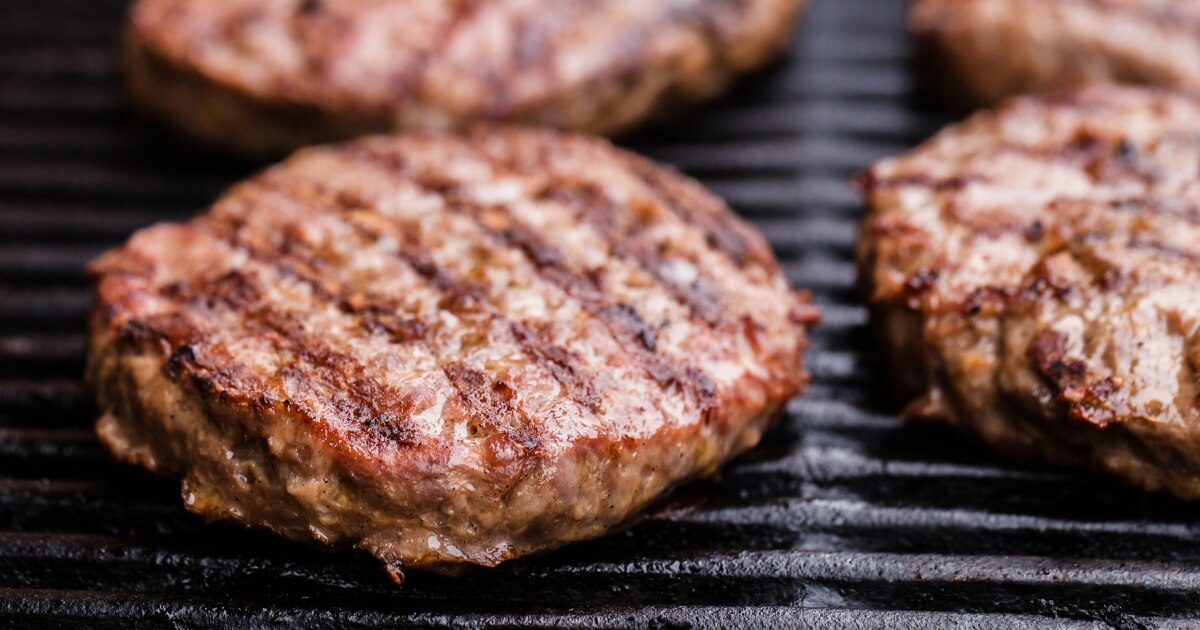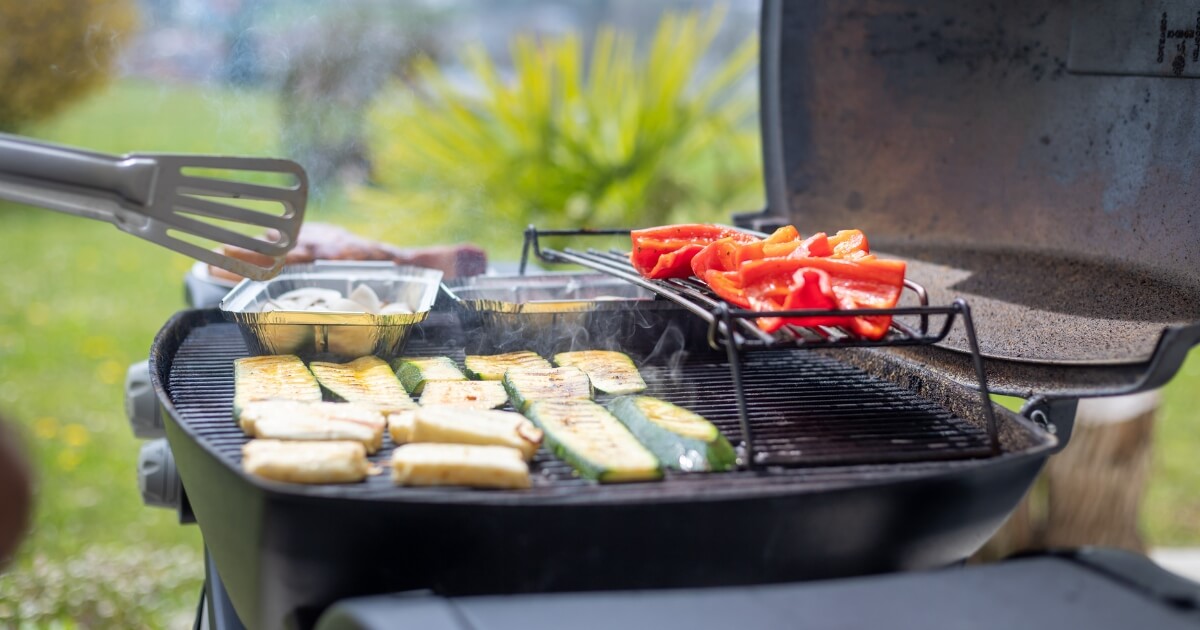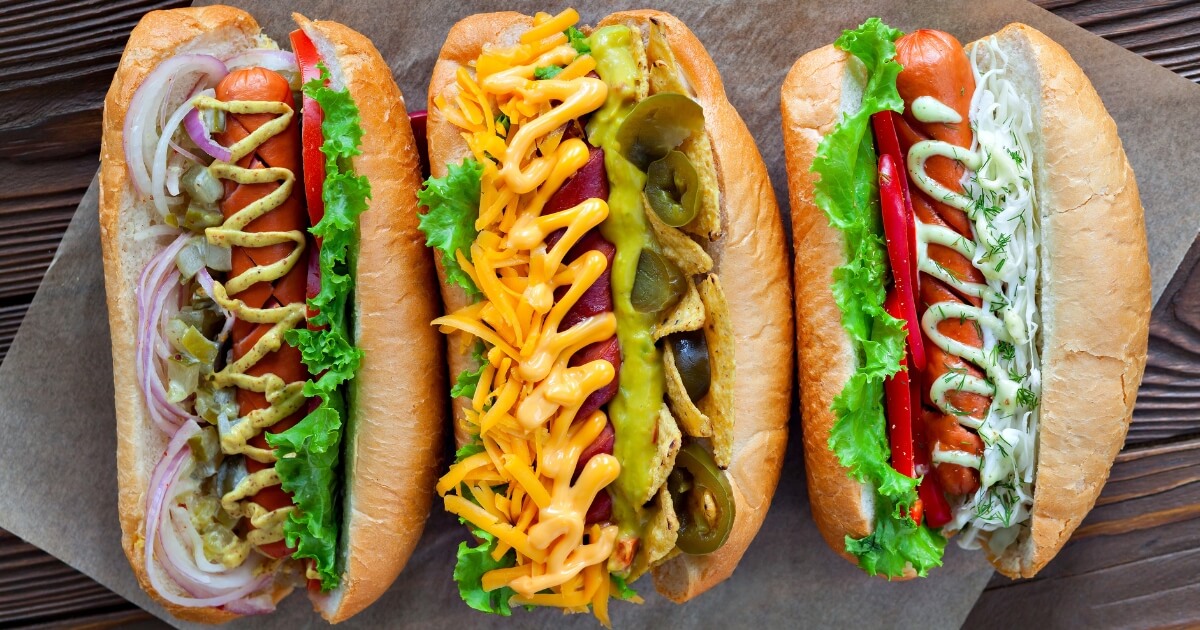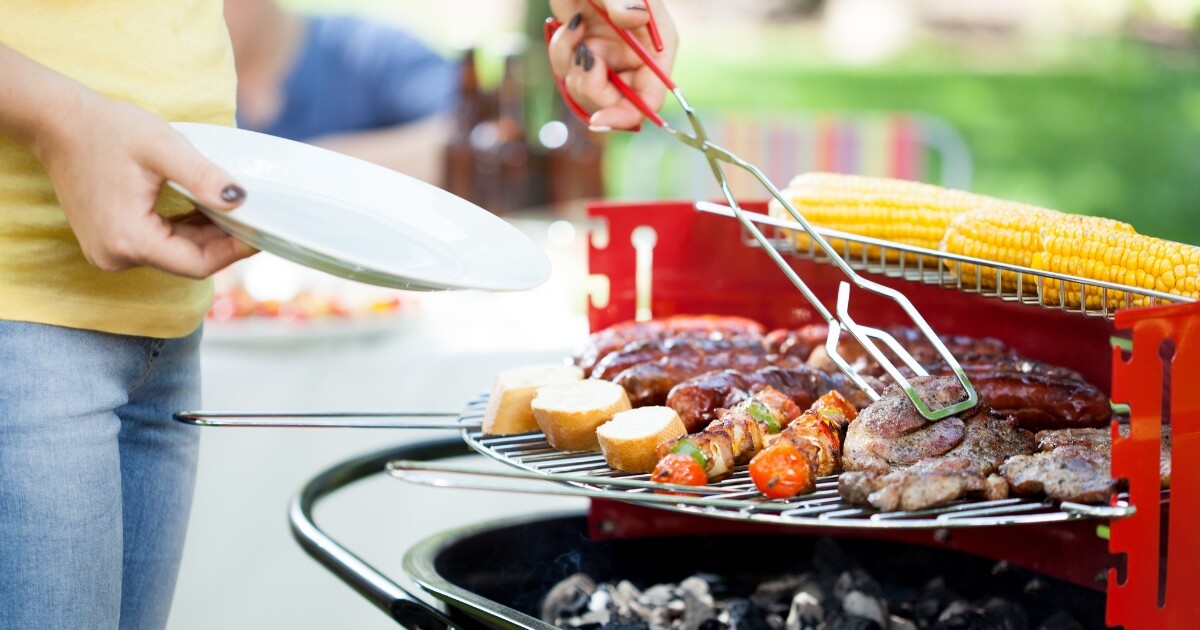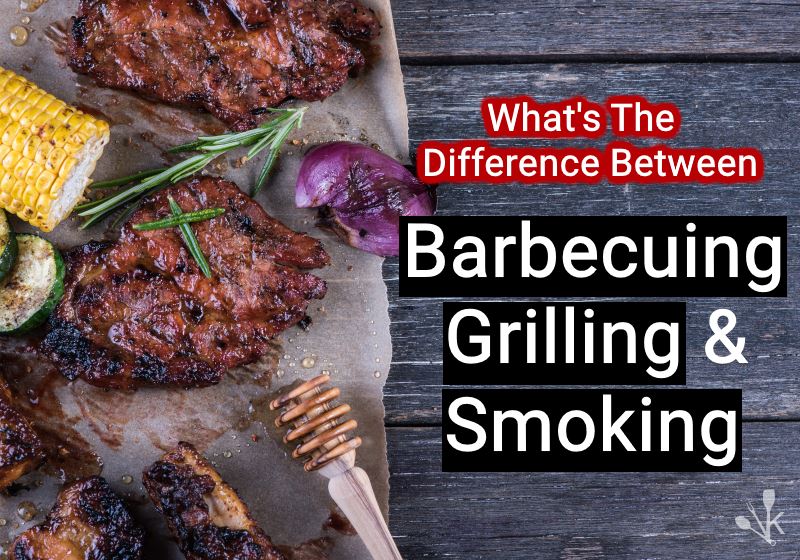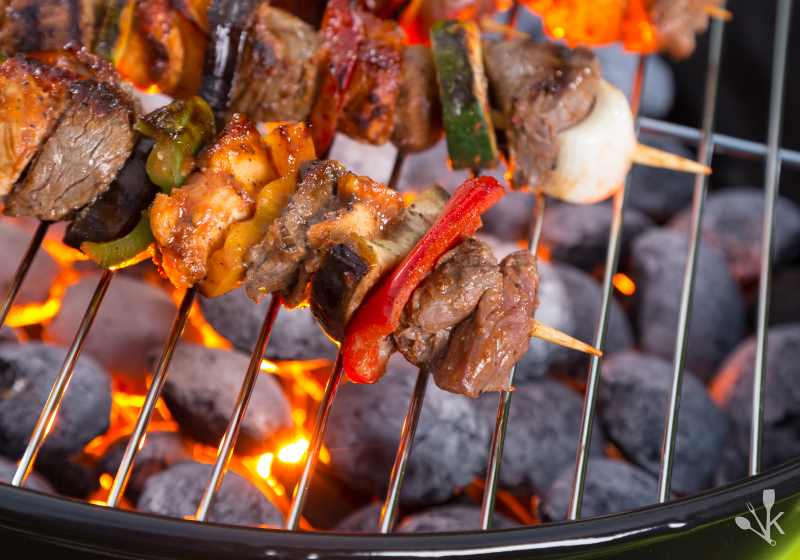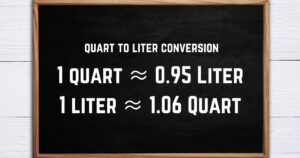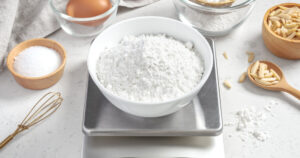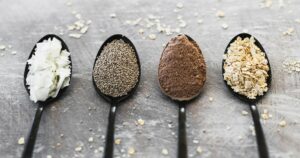Grill rust is just the first step in a journey that can end in a cooking catastrophe. If you let rust run free through your grill grates, the whole thing can deteriorate quickly and eventually suffer serious structural damage.
You can prevent rust by drying, cleaning, and oiling your grill after every use. If your grill is already rusty, you can save it with a simple household solution involving baking soda, vinegar, and salt.
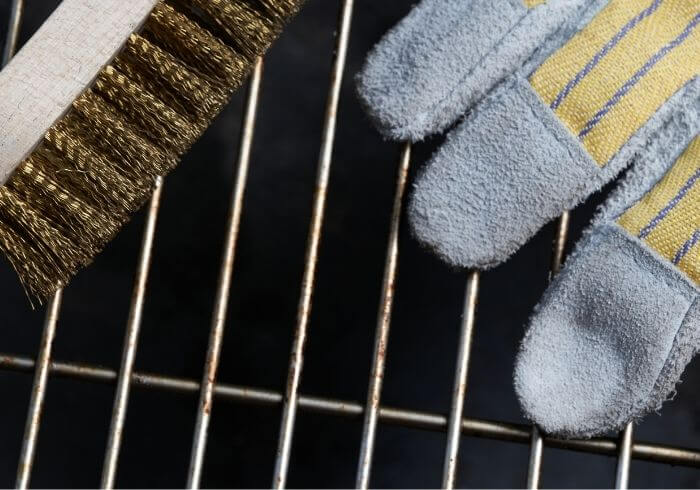
How To Keep Grill Grates From Rusting
Cast Iron Grills
The best way to make rust is by combining iron, oxygen, and water. Cast iron grills are particularly susceptible to oxidation in the presence of moisture.
Stainless Steel Grills
Stainless steel is an alloy that contains a lot of iron, but it’s mixed with another mineral known as chromium. Chromium has an almost magical way of combining with nearby oxygen and moisture to create a self-repairing layer of chromium oxide film, which helps keep rust away.
It isn’t 100% effective, though. Sometimes the surface layer can disconnect from the chromium alloy. When this happens, rust can spread to the surface of the steel from any adjacent rust-carrying metals. These can include the nuts and bolts holding it in place, metal utensils, or even tiny particles of iron dust.
Tips To Prevent Grill Rust
1. Keep It Dry
There are a lot of reasons to get your grill wet. Creative grillers are constantly marinating, glazing, or saucing up their meat. Even plain poultry, steaks, and sausages are filled with all kinds of juices that can jumpstart oxidation.
That’s why it’s important to dry your grill after you use it. This can be as simple as leaving the burners on high for about 10 minutes after taking the meat off. Once you see the moisture evaporating, you can turn the heat off.
2. Keep It Clean
Every time you finish using your grill, give it a once-over with a gentle brush. Hard bristles can scratch your grates and encourage rusting, but soft bristles will brush away any foreign particles and help keep your grill pristine.
After 10 to 15 uses, it can help to perform a deeper clean, which we’ll show you how to do below.
3. Keep It Oiled
After you brush off the gunk, dip a rag in some vegetable oil, and apply a thin layer as evenly as you can. Coating your grates with vegetable oil is a food-safe, environmentally-friendly way to ward off unwanted moisture.
4. Keep It Drained
Regular check the drip tray underneath your grates and drain it when too much grease, ash or other debris builds up. If your grill gets rained on, the drip tray can collect water and incite rust, so double-check it after wet weather.
Do Grill Covers Prevent Rust?
When it comes to rust, moisture is your grill’s greatest nemesis. You can keep moisture on the outside where it belongs by covering your grill between barbecues. We recommend using a tight vinyl or nylon cover lined with a soft cloth on the inside.
If you live in an area with long winters or rainy seasons, move your grill indoors to your garage or shed when the weather gets bad.
What To Do If Your Grill Has Rusted Out
If you spy rust anywhere on your grill, it’s time for deep cleaning.
Stainless steel grills are finicky, so handle them with care. Don’t use steel wool or anything rough or metallic. Just a soft sponge and a baking soda and water solution will get the job done.
Cast iron needs a firmer hand. It’s more susceptible to rust but harder to scratch. Whip out the steel wool, and mix salt into the baking soda to thoroughly break down any starter oxidation.
Things You Might Need
- Soft grill brush or sponge
- Steel wool
- Rags
- Water
- Baking soda
- Salt
- Vinegar
How To Deep Clean Your Grill
- Add around a cup and a half of baking soda to half a cup of water to make a thick paste. Toss in a pinch of salt for cast iron grills.
- Using a soft brush for stainless steel or steel wool for cast iron, cover your grill inside and out with baking soda paste. Make sure to hit all rusty areas, including the drip trays, burners, burner holes, and inlet holes.
- Let the grill soak for a couple of minutes.
- If you have a gas grill, turn the flame on for a few minutes. A quick blast of heat will boil the baking soda as it eats through the rust, evaporating the solution together with the oxidation.
How To Get Rid Of Stubborn Rust
- If you’ve been busy and your grill has really let itself go, you may need to soak it overnight. Use a large, thick garbage bag that can hold all the rusty parts without tearing.
- Toss a cup of baking soda into the garbage bag, and follow it up with two cups of white vinegar. It should start bubbling.
- Quickly put your grates and any other rusty parts into the bag. Close it with some twine or a rubber band.
- Slosh the liquid around in the bag to thoroughly drench all the surfaces.
- Lay it on a flat surface to keep all the metal parts submerged. Leave it to soak overnight.
- The next day, remove all the parts of your grill from the bag, and hose them down.
- Use a rag to wipe off any stubborn, clingy rust that remains.
Final Thoughts
If you keep your grill clean, dry, and oiled, it will be harder for rust to find a finger hold. To clean a rusty grill, cover it with a baking soda and water paste, and heat it up for a few minutes. Get rid of stubborn rust by soaking your grates in baking soda and vinegar overnight.

